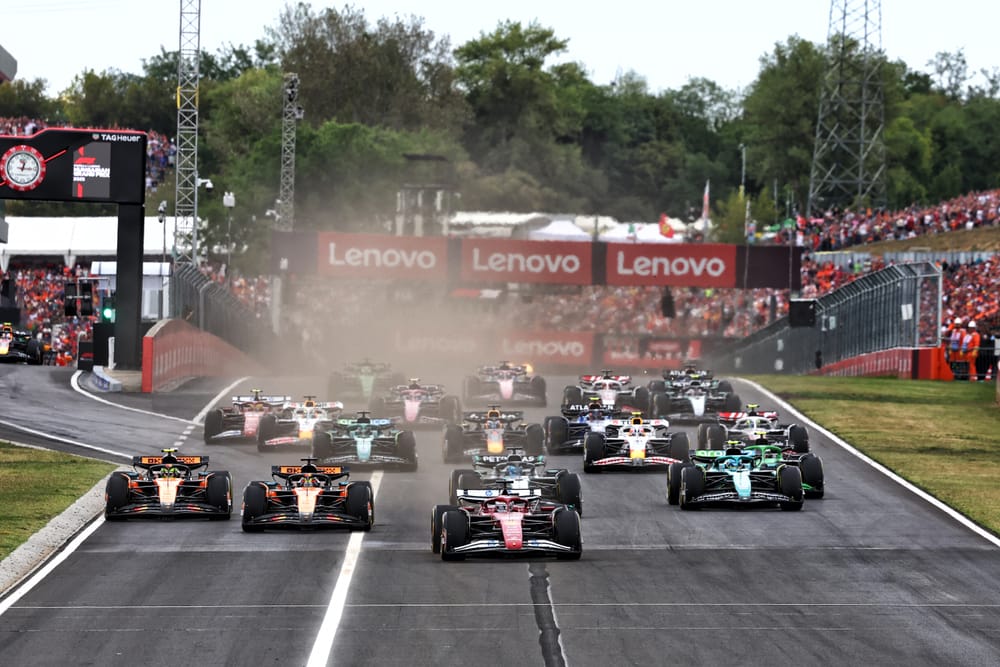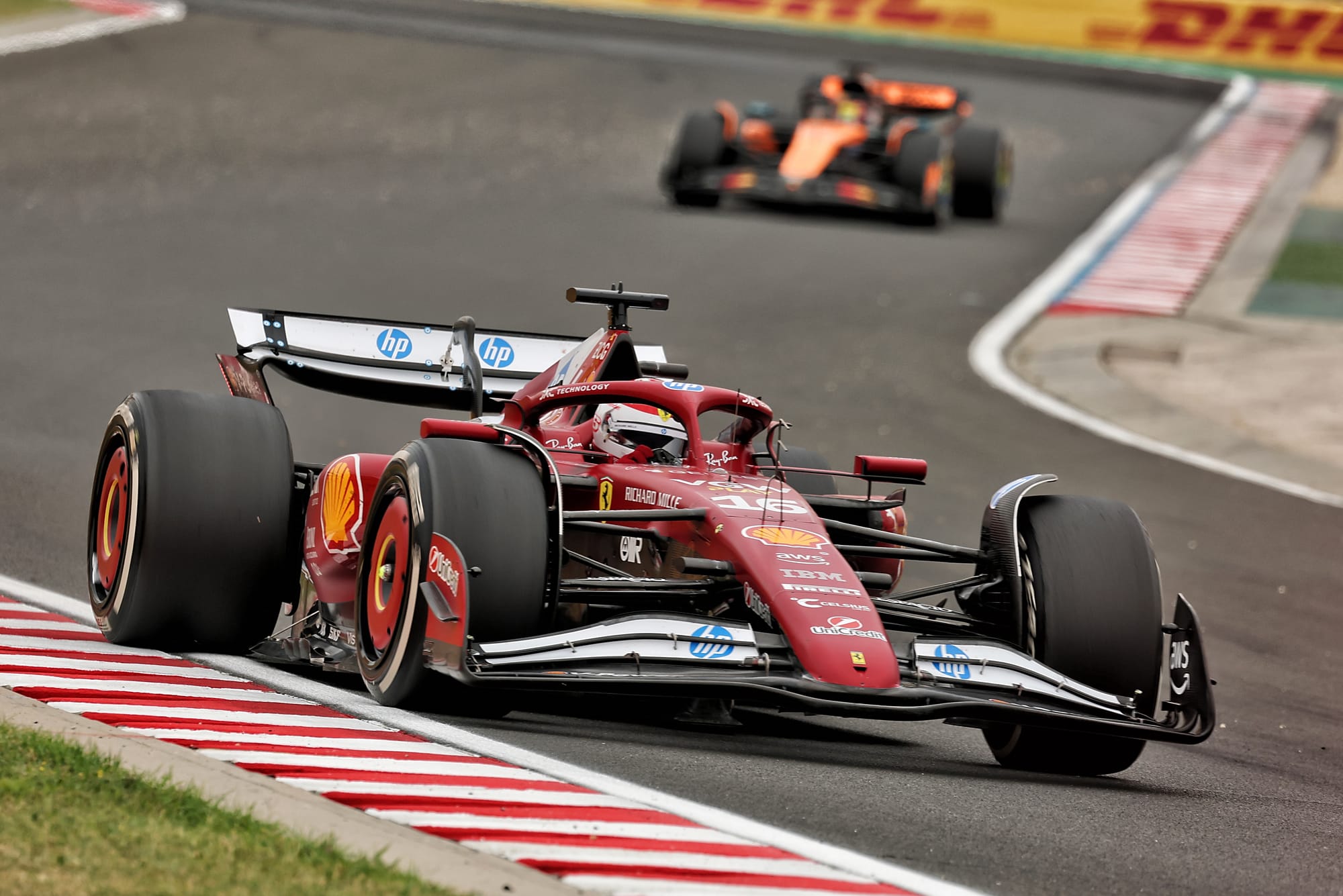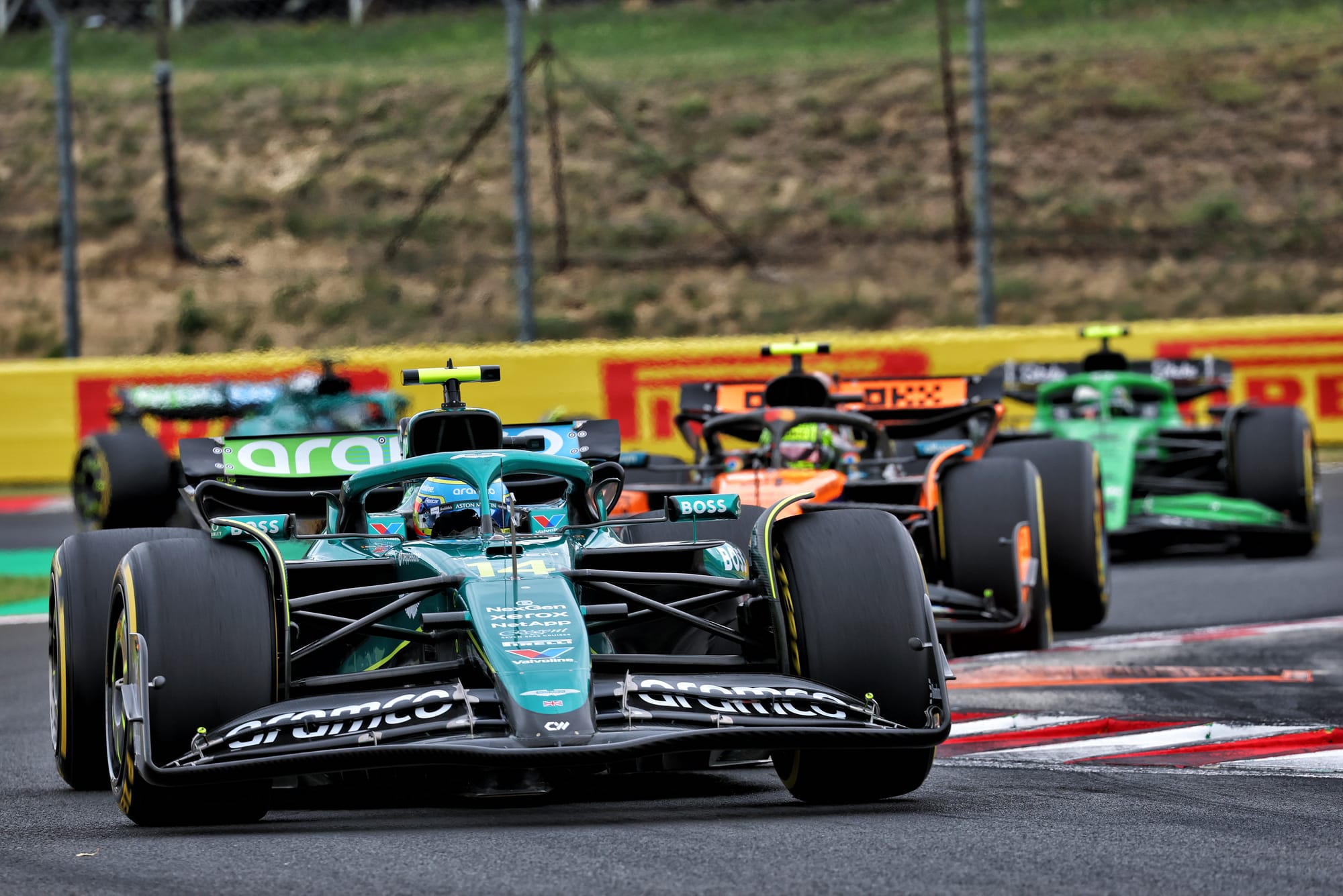Formula 1's back and forth 2025 world championship fight took another twist before the summer break, while big performance swings jumbled the pecking order behind McLaren.
Here's everything we learned from the Hungarian Grand Prix.
Ferrari's best win chance (so far)
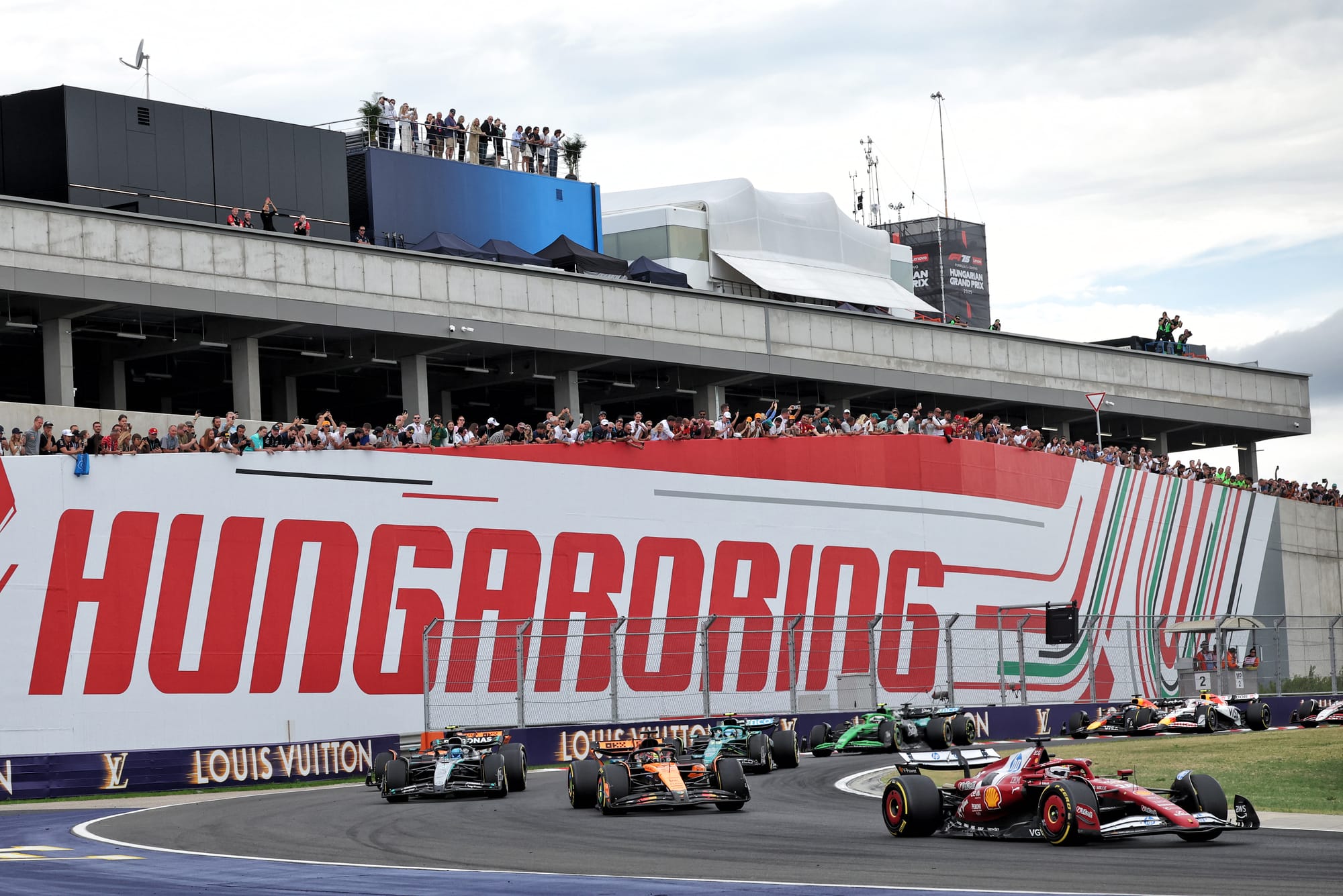
Charles Leclerc was understandably disappointed to lose his best chance to finally win an F1 race in 2025 to a mysterious Ferrari problem.
After the finish, Leclerc was quick to retract his in-race radio frustration as he mistakenly believed his dramatic pace slump was down to Ferrari making a front wing set-up change in a pitstop.
Instead, it was a separate issue Ferrari claimed it didn't fully understand. It started costing Leclerc in every single corner and lost him two seconds per lap, meaning he slid from the victory fight to fourth.
Leclerc called it his "one opportunity" to win a race this year and he isn't optimistic that he'll get this chance again in the second half of the season.
But maybe that depends on how much progress Ferrari's been making of late, and whether the issue that cost him in Hungary was a freak one-off or something fundamental - like a recurrence of the plank management problem that recent updates were meant to solve.
Team boss Fred Vasseur believes nobody should draw conclusions from Leclerc's disastrous final stint.
He pointed to the pole in Hungary and podium at Spa as evidence that the upgraded Ferrari is much improved - while rival McLaren team boss Andrea Stella believes Ferrari will be a "contender for victories for the remainder of the season".
You can see why, given Ferrari nearly beat both McLarens in a straight fight in Hungary - something that would have been unthinkable for most of this year so far.
A brilliantly used 'joker'
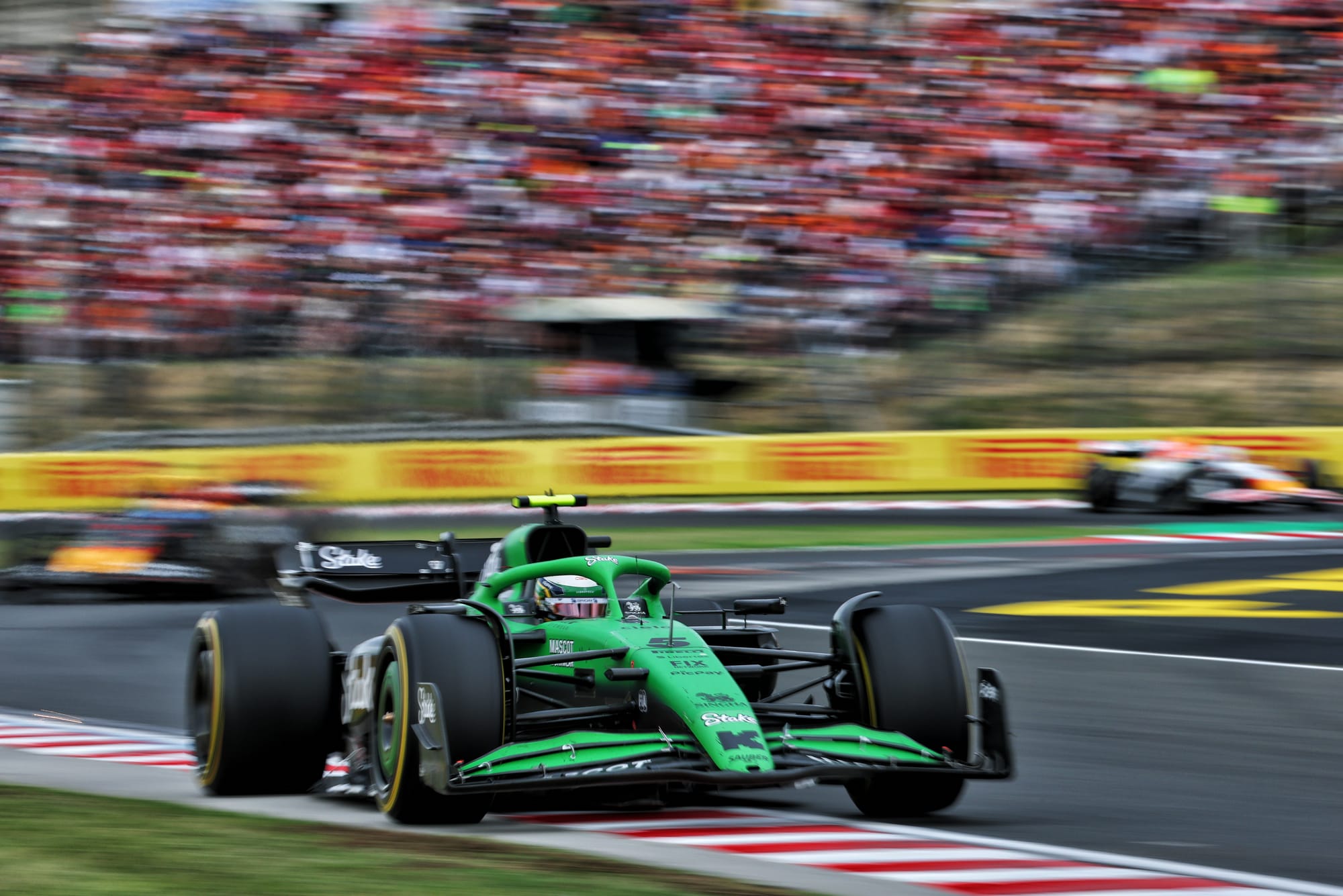
Sauber's astonishing revival continued at the Hungaroring, with Gabriel Bortoleto finishing a career-best sixth. The Brazilian's outstanding performance played a big part in that, but so too did a decision Sauber made on Friday.
Bortoleto struggled badly in Friday practice, describing himself as "zero comfortable with the car and struggling a lot with the balance".
The team decided to bust the Friday-night curfew so that operational personnel could work beyond 10pm. Every team can do this twice per season and Sauber's decision to play its first 'joker' in Hungary allowed it to work on reliability problems and fix balance issues.
Bortoleto himself stayed late to ensure he was there to thank his car crew when they finally finished. He also rewarded their effort with a strong weekend, reaching Q3, setting the seventh-fastest time and not putting a foot wrong on his way to sixth in the race.
Along the way, he held firm early on under pressure from Max Verstappen, and chased mentor Fernando Alonso to bag his third points finish in four grands prix.
Where Red Bull's being 'killed'
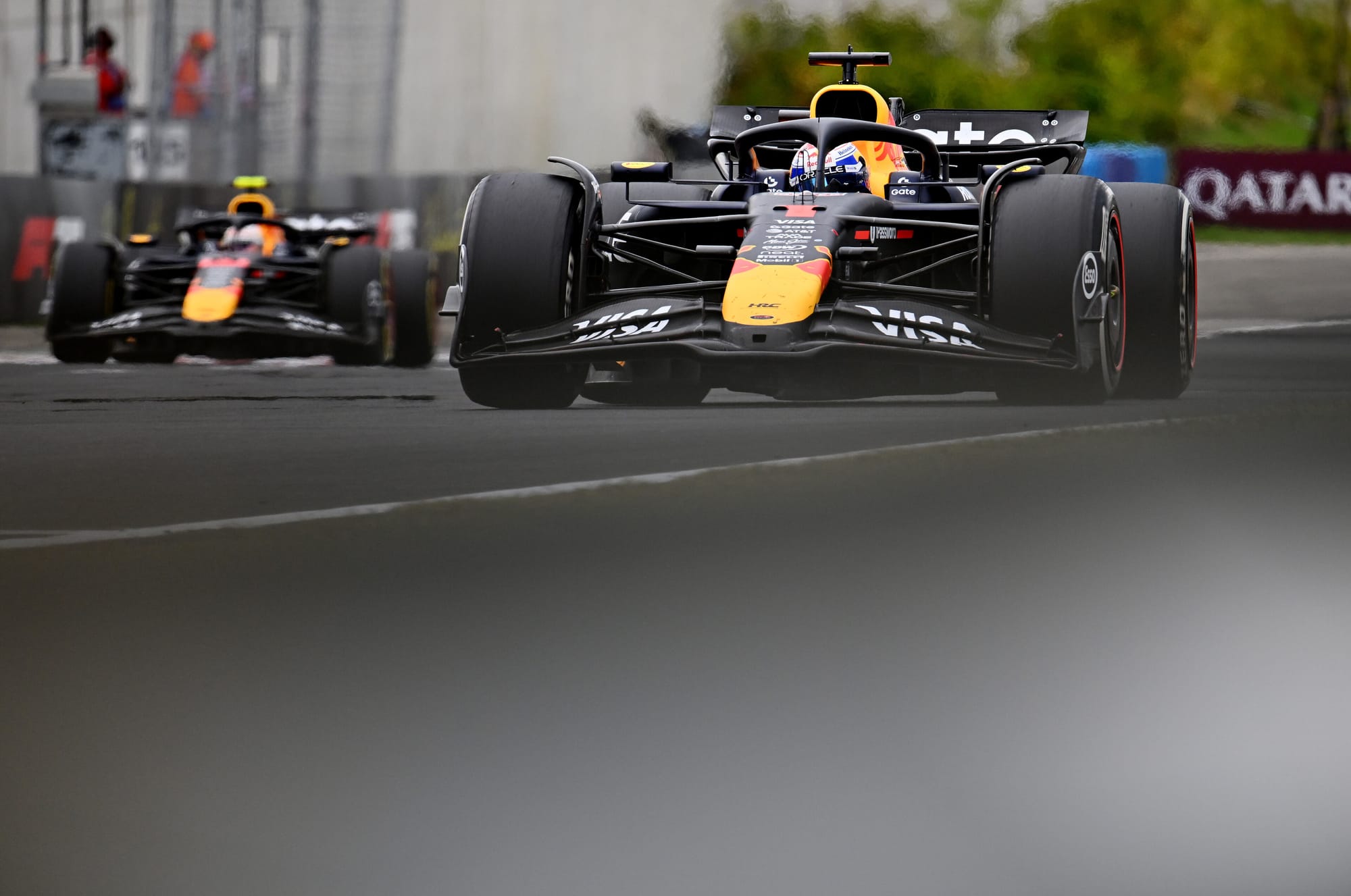
Red Bull knew it was vulnerable heading to the Hungaroring as the track's bias of medium-speed turns was perfectly suited to McLaren.
But the team and its lead driver had no idea just how hard it was going to be.
Red Bull endured a performance low point for the season, as Verstappen never realistically looked like challenging for the podium, qualified eighth and finished ninth.
His team boss Laurent Mekies acknowledged that there was nowhere Red Bull was a match for the benchmark McLarens, as its drivers felt a lack of grip in slow- and medium-speed corners all event long.
And in an interesting admission about where the performance stacked up against McLaren, Mekies offered a quite brutal assessment - saying where McLaren is "killing us on most tracks is the medium-speed corners".
McLaren encourages driver deviation
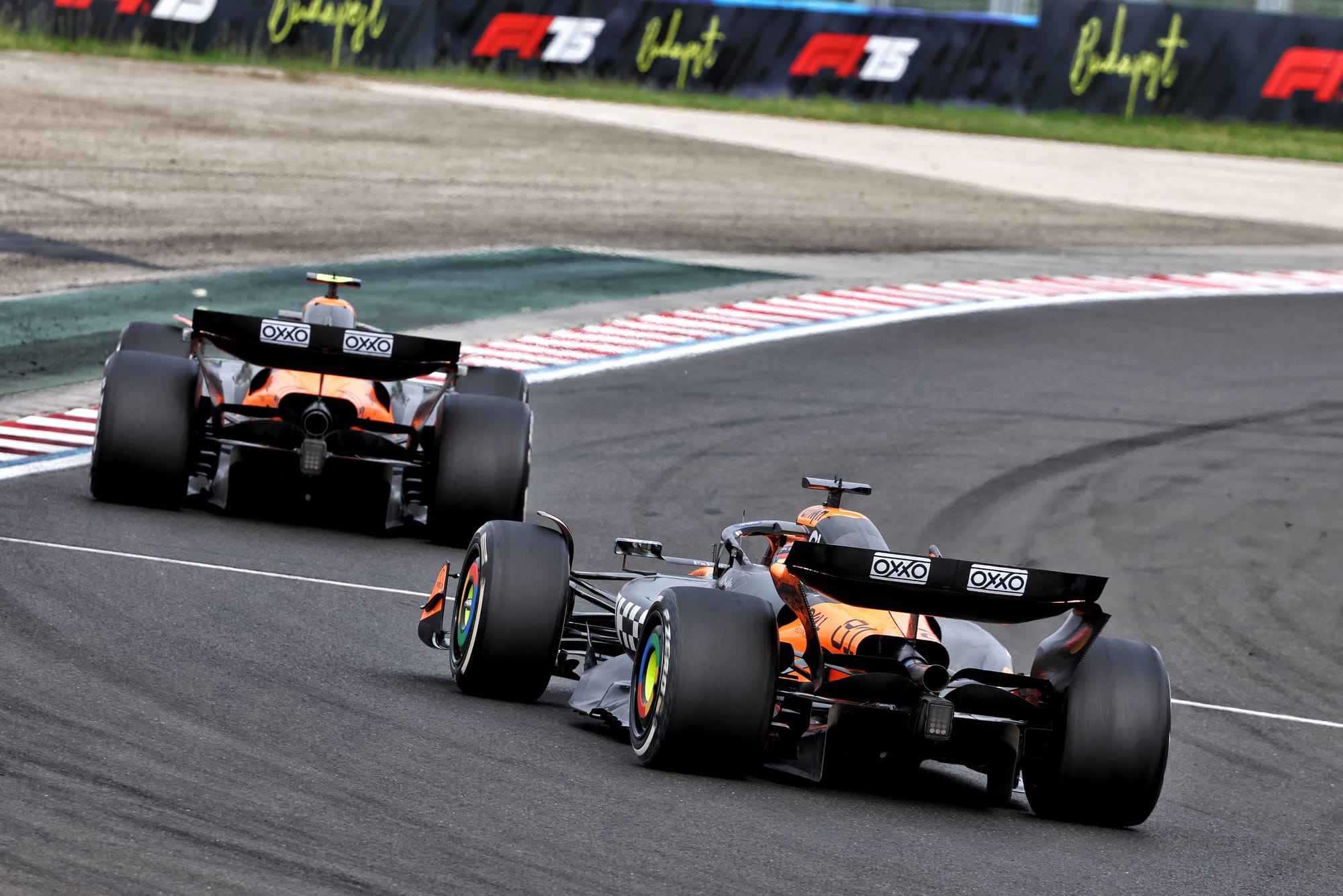
Lando Norris called his fifth win of the season, which trimmed the gap to Oscar Piastri to just nine points, his first victory "where doing a completely alternate strategy to most, giving myself that opportunity, worked out".
It came a week after another strategy variation, taking hard tyres at Spa instead of mediums like Piastri had the lap before, had not made a difference.
But this revealed something interesting: that McLaren doesn't just permit strategic deviation, it encourages it.
"When we are deviating strategies, when we have different options, this is part of racing," said Stella.
McLaren basically thinks Piastri can't complain because the one-stop had been discussed pre-race, so it was on the table for both drivers and Norris wasn't sneakily given an option that surprised Piastri.
Plus, the two-stop was considered clearly the preferred strategy. Piastri just got unlucky with how the race played out. Norris was able to take the gamble because he had a poor first corner and was on the back foot, then did a good job as fortune swung his way.
There is no divine right to win in F1 just because you qualify ahead or emerge from the first corner in front. So this McLaren policy of strategic freedom could become a significant variable over the remainder of the title fight.
As Piastri said, "when you're the car behind, your risk-reward ratio is always much different".
Mercedes upgrade 'in the bin'
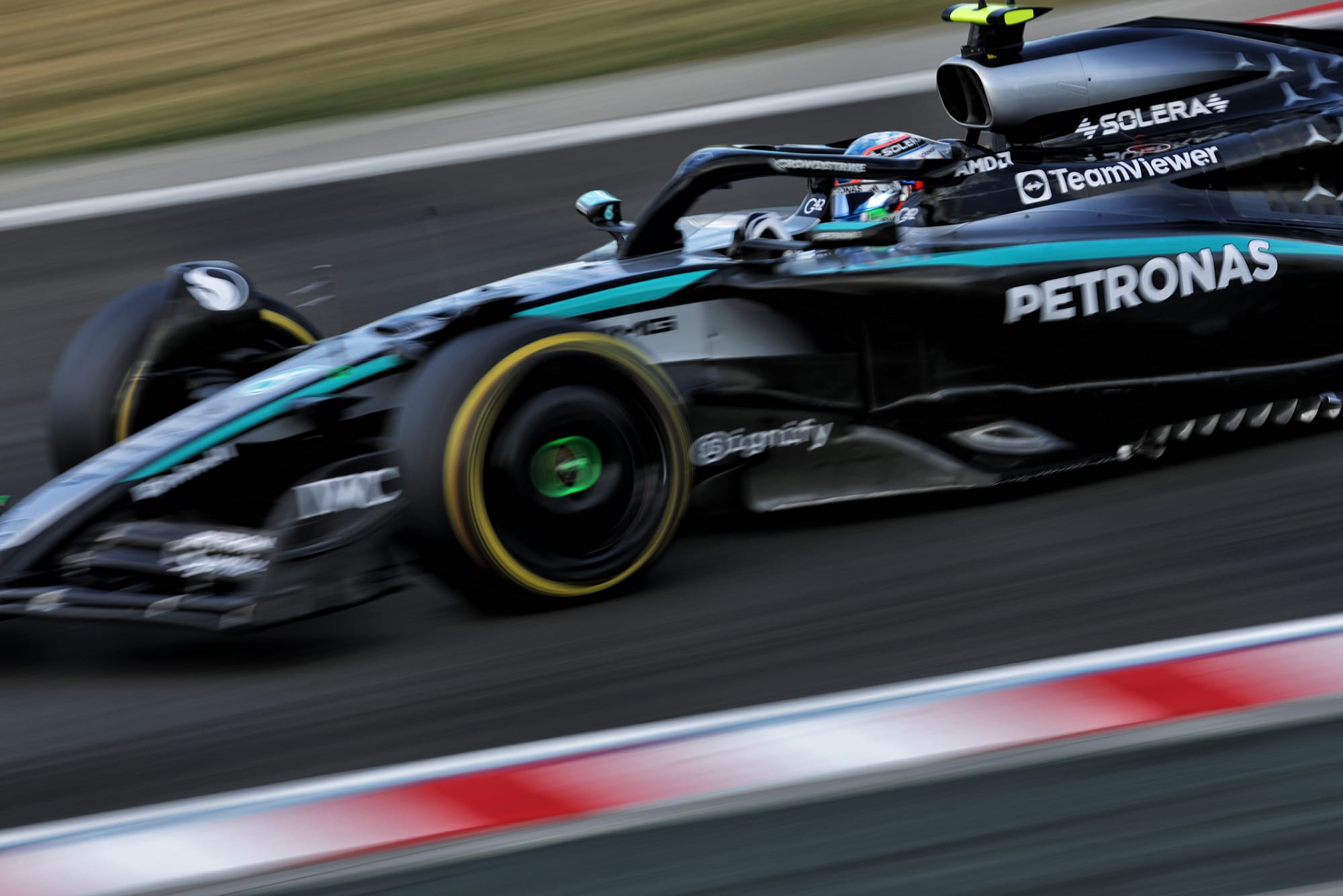
A first Mercedes podium in four races can be partly explained by a development U-turn it made ahead of the Hungary weekend.
Mercedes dropped the suspension it introduced at Imola in May for the second time this season, having already parked it for Monaco and Spain before it returned to aid Mercedes' Montreal victory in June.
The team has ultimately realised the new suspension creates more problems than it solves, so in the words of team boss Toto Wolff, the upgrade is going "in the bin".
That's good news for rookie Kimi Antonelli, who was facing a confidence crisis with six no-scores in seven races and struggling to consistently push the car to its limit.
The old suspension went a long way to restoring his confidence in Hungary, even though the result of 15th in qualifying due to a track limits deletion and a monster stint to pull off an ambitious one-stop 10th in the race doesn't fully show it.
"The feeling was back and this weekend was actually pretty strong," he insisted.
This is now the version of the W16 he and George Russell will have for the rest of the season, with no more upgrades planned.
That at least guarantees the binned suspension will be the last development mistake of a bruising ground effect era for Mercedes.
Aston Martin unsure why it was so good
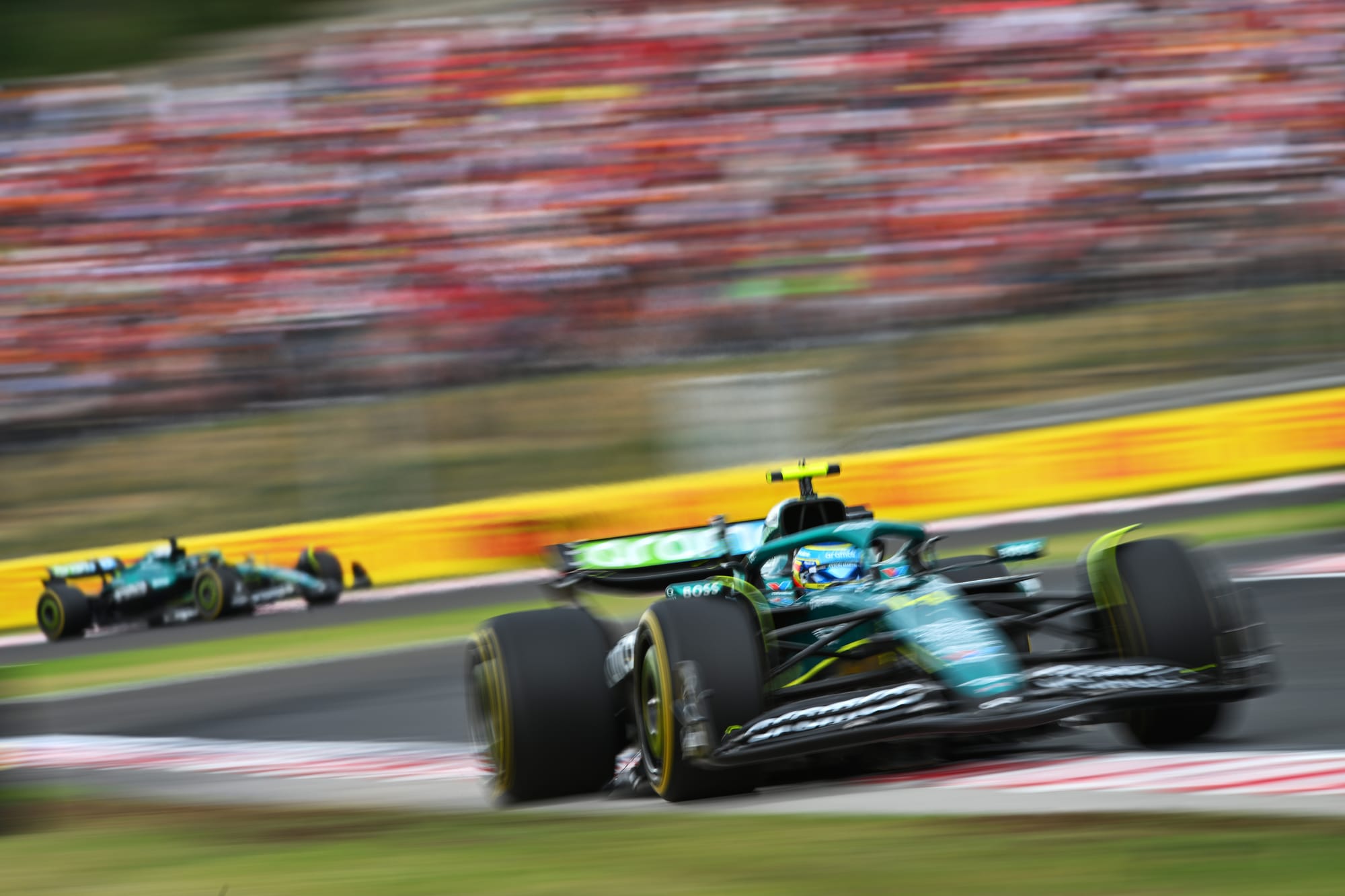
From being slowest of everyone at Spa to best of the rest and enjoying its best weekend of the season a week later, Aston Martin enjoyed a hell of a turnaround in Hungary that it doesn't fully understand.
Fernando Alonso converted fifth on the grid into the same place in the race, backed up by team-mate Lance Stroll in seventh. Alonso called it a "nice surprise" but admits "the concerning thing is why we don't know why".
The Hungaroring definitely suits the AMR25 better, as Aston Martin's cars are always better when everybody has to run high wing levels.
But the uncertainty isn't that 'Aston Martin was better here'. It's why it was so much better - as this wasn't just in keeping with its strong pre-Spa form, but it was a new peak.
There was another revision to the front wing in Hungary but as Alonso said, if that gave Aston Martin that much performance "that's very good news - but I think that has to be understood".
Tsunoda's pride in worst result
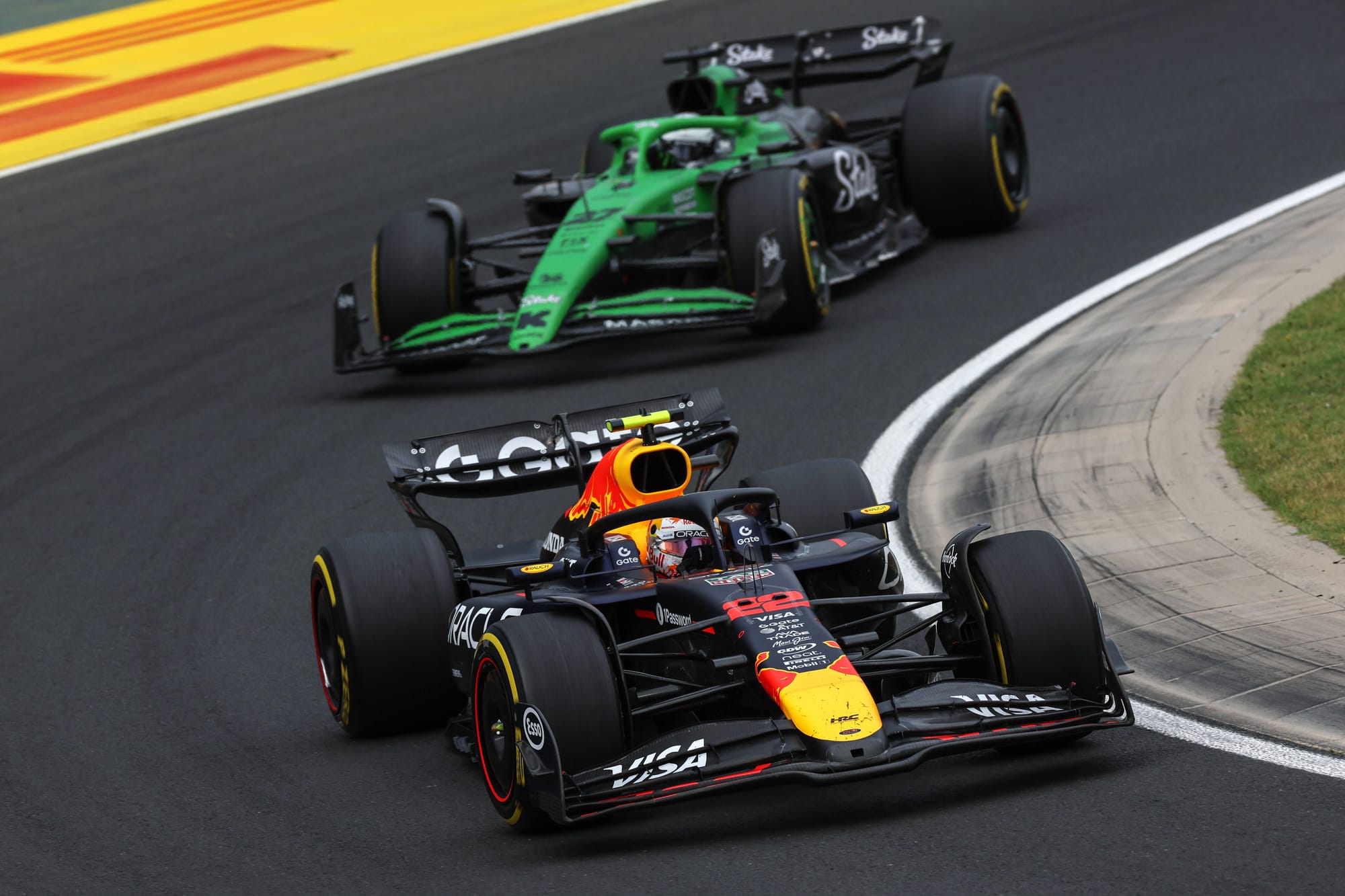
Yuki Tsunoda spent the whole Hungarian GP weekend closer to Verstappen's pace than ever before, and was even quicker than him for the first time in a practice session on Friday.
And it became totally irrelevant as Tsunoda matched his worst result with Red Bull of 17th.
Red Bull's nightmare weekend at the Hungaroring meant Tsunoda was eliminated early in Q1 despite being just a tenth and a half slower than Verstappen.
That led to another pitlane start for a strategic engine change to have more options for the rest of the season, and a long afternoon at the back stuck in traffic - which was made worse by picking up damage.
As Verstappen barely managed to score a couple of points, this was hardly a disgrace from Tsunoda. And Red Bull opted to ignore the race result entirely and focus on his speed.
Team boss Laurent Mekies called it a "very strong sample, maybe his best so far", while Tsunoda himself felt boosted by his progress and was "proud" of his performance despite the result.
Hamilton's struggling to accept Ferrari lows
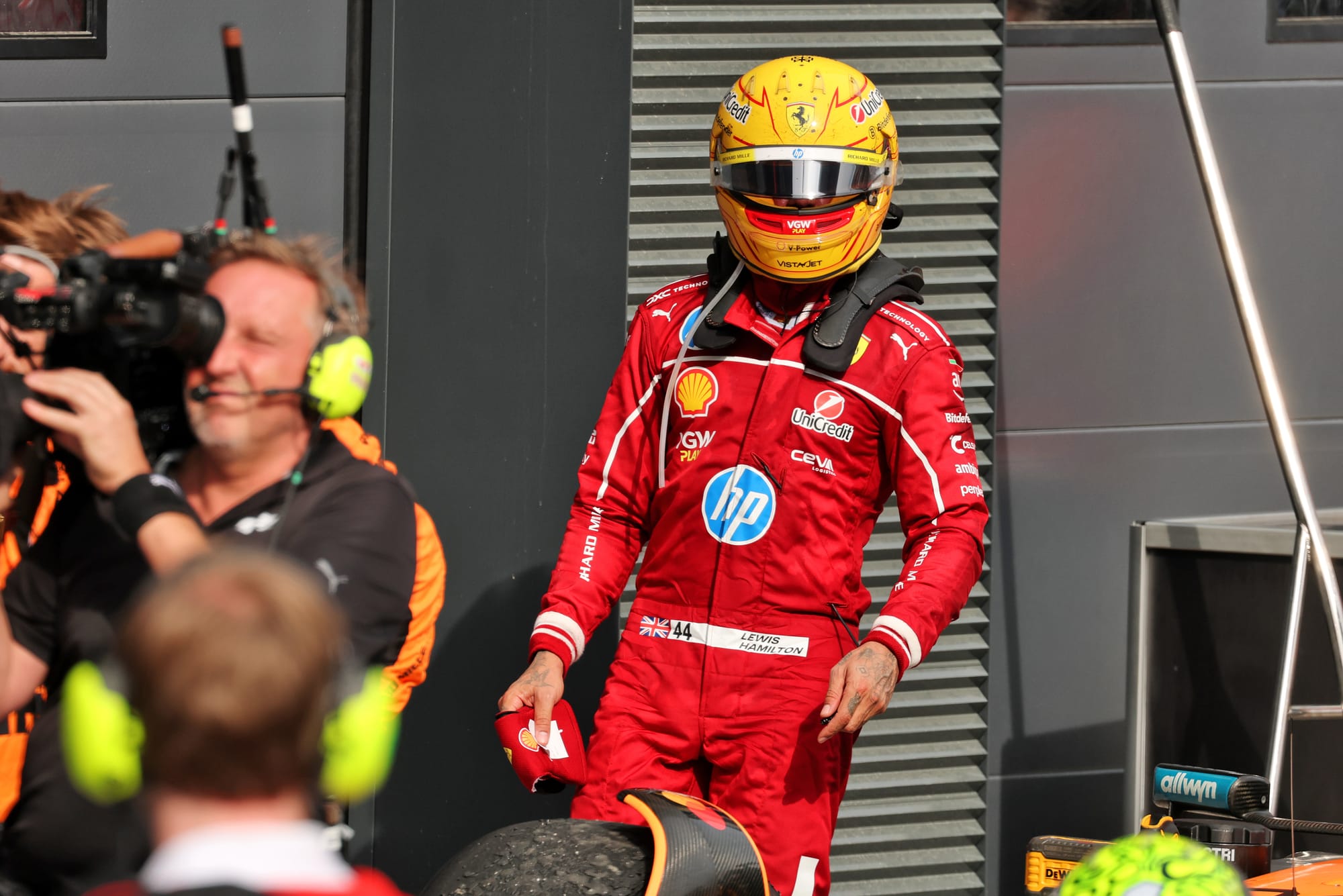
Hungary marked a new extreme for Lewis Hamilton as the contrast in results with Ferrari team-mate Leclerc left him clearly struggling to accept his situation.
Having failed to get through to Q3 by just 0.015 seconds, and then seen Leclerc grab pole position, Hamilton’s miserable post-qualifying assessment included a dramatic claim that Ferrari probably needed to change drivers.
And on Sunday night, after failing to make much progress with an offset strategy, he didn't seem any happier.
It's quite common for Hamilton to let his emotions swing as results fluctuate. But this weekend his demeanour was worse than he'd been even when he was struggling so much at Mercedes last year.
The Ferrari move was meant to give Hamilton a new lease of life, and started with such optimism.
So when Hamilton feels himself suffering what feel like the same mistakes and qualifying disappointments, he slips into saying he's "useless" and it's all his fault alarmingly quickly - even if those lows are more infrequent than he makes out.
Williams is worried
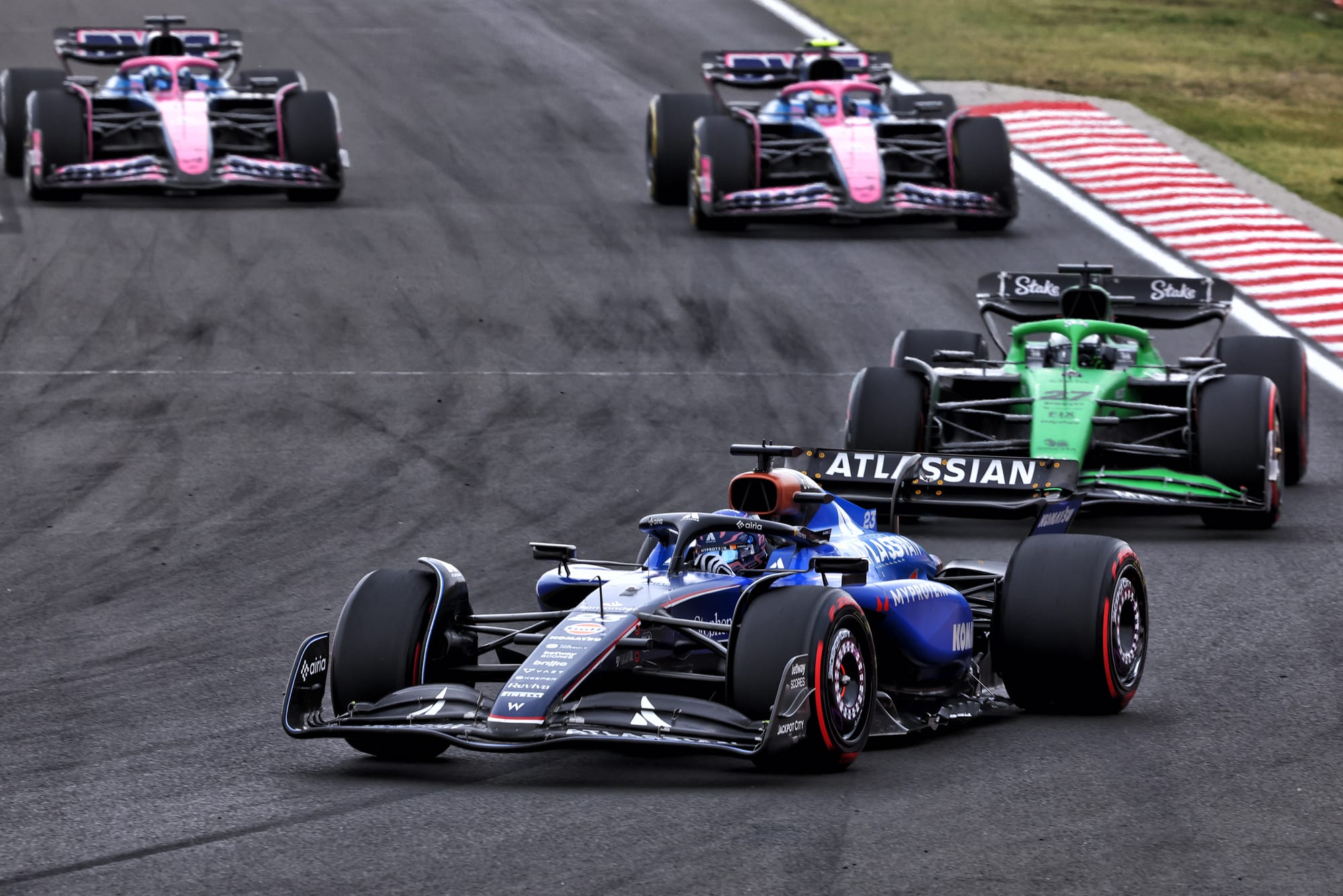
Williams had a bad weekend in Hungary, failing to score points with nearest rivals Sauber, Racing Bulls and Aston Martin all closing the gap in the constructors' championship.
That leaves Alex Albon, who finished 15th, fearing a rearguard action to defend fifth in the points.
While the recent aerodynamic upgrade at Silverstone has boosted the performance, the Williams is still weak in high-downforce trim thanks to balance struggles. As Albon says, it's going to be one of those years of Williams trying to "hold on" for the rest of the season.
Team boss James Vowles confirmed at the Hungaroring that there are no more upgrades planned for after the summer break.
Given the importance of next year's major rules overhaul for his team, he's not concerned even if Williams does lose ground in the 2025 championship.
"We're not doing anything more," said Vowles of the upgrade plan. "If that results in sixth or seventh in the championship, so be it."
With an 18-point advantage over nearest rival Sauber, and just a week after finishing fifth at Spa, Williams is in a good position - but not an impregnable one.
Alpine mistakes 'everywhere'
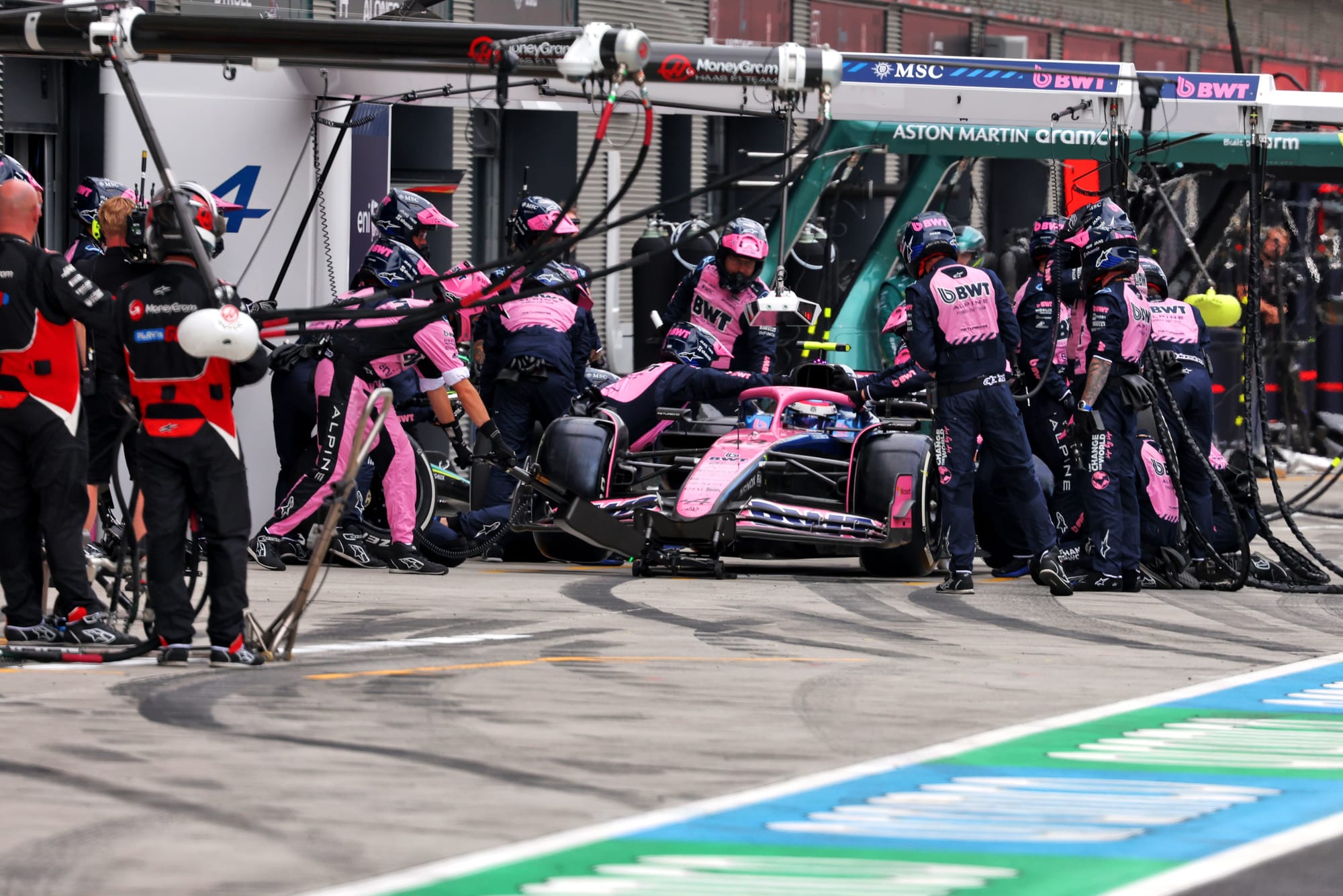
You have to feel for Franco Colapinto. He finally outqualified Pierre Gasly and put together a pretty solid weekend, even sneaking into Q2 at a track where Alpine's car was hopelessly uncompetitive.
But that was as good as it got. Colapinto beat Gasly thanks to his team-mate's 10-second penalty, although he shouldn't have needed it.
He had a bad first lap, running wide at Turn 2 - but in his words there were mistakes "everywhere" from Alpine.
The messiest part of his day was two long pitstops, so Alpine screwed up more than he did.
It's a shame that Colapinto has signed off a very tough run in the car with a weak result because the last couple of weekends have been better and this one was his strongest in terms of pace relative to Gasly, although his driving in the race needs to be tidier.
He saw the positive that "I did find some performance" - it just counted for nothing because of Alpine.


